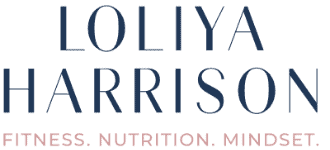Hormone Replacement Therapy has had a bad rap. It has been headline news, linked to breast cancer, high blood pressure, and blood clots. Perhaps as a result, I believe some medical advisers have tended to over-estimate its risks and under-estimate its benefits. Unfortunately this has meant many menopausal women not being in a position to make informed decisions, and to have suffered in silence. It’s time to have a rethink.
HRT was developed to help some perimenopausal and menopausal women replace the hormones (mainly oestrogen and progesterone) that the ovaries no longer produce in sufficient quantities. This hormonal decline often results in symptoms such as hot flashes, mood swings, bladder changes, irregular periods and the rest.
Sussex GP, Dr Katie Armstrong, who works mainly with menopausal and perimenopausal women, talked about her views in a recent interview. I’ll share some of the ideas discussed:

The types of HRT on offer: Body-Identical, Synthetic, and Bio-Identical
Body-Identical HRT consists of plant based hormones, usually made from yam. Their chemical structure is almost identical to hormones made by the ovaries. This means your body recognises them and is better able to utilise and tolerate them, compared to synthetic hormones.
Body identical oestradiol (Oestrogel, Sandrenais, Lenzetto, Estradot) is administered in the form of a gel, patch or spray directly onto the skin. It is a small molecule which can be absorbed easily and it travels straight into the bloodstream. This mimics the journey of natural oestrogen and is thus safer¹. It is uncertain how much hormone each woman is actually getting because of differing absorption rates of skin. So Katie recommends having a hormone blood test if you only get a partial response after being on HRT for 3 months.
Synthetic-HRT uses lab-made hormones similar to those made by the ovaries. However these can have some adverse effects on the body compared to natural hormones² . Additionally, synthetic HRT is usually taken as a pill. Katie warns that taking HRT orally has the potential to put your health at risk. When oestrogen first goes through the gut and gets processed by the liver the process itself can activate clotting factors. This could potentially lead to an increased risk of DVT (deep vein thrombosis), brain clots and high blood pressure.
Bio-identical HRT is a mixture of different natural hormones compounded together based on a woman’s individual blood or saliva hormone tests. They are made by specialist small pharmacists and are used mainly by private clinics. One potential downside is that they often use additives, which can be harmful to some women. In addition tests to determine bespoke hormone levels for individual women may not be very accurate. NICE (National Institute for Clinical Excellence) does not approve of bioidentical hormones. It is unlikely that your NHS doctor would prescribe these.
How long should a woman be on HRT?
In general the time to start HRT is either when in perimenopause, or within 10 years of menopause. There is an increased risk of heart disease in women who start HRT beyond 60. Katie recommends an annual review for every woman taking HRT to weigh up the risks and benefits. This is particularly important if women are taking tablet HRT.
What are the options of HRT for women who have survived cancer?
This depends on the type of cancer. Be cautious if it is a hormone-dependent cancer. Women who have had any form of cancer need a detailed conversation with their doctor before taking HRT. For more information on HRT and cancer Katie recommends a book, ‘Estrogen Matters’ by Avrum Bluming.
If you want to discuss HRT, how should you prepare for a GP appointment?
- Try to be clear as to why you might want to take HRT. Is it to alleviate symptoms, or for longer term health benefits such as prevention of osteoporosis or heart disease?
- Try to find out if there is a doctor in your GP practice responsible for, or knowledgable about, menopause and ask to see them.
- Arrive prepared with some information. Green climactic scale is a quick symptom checker questionnaire that you can complete and even email through before your appointment. This can help the doctor prepare in which direction to take the conversation.
- What if you are offered antidepressants for menopausal symptoms? There is no evidence to support the use of antidepressants for hormone dependent mood changes, according to NICE³.
- If the doctor would like more information on some of these ideas, especially about body identical HRT, then Newsonhealth.co.uk have a short factsheet that can help doctors prescribe body identical HRT. Here is the link https://www.newsonhealth.co.uk/uploads/2021/07/Body-Identical-Hormones-FINAL-22.pdf
Finally, please note – I am not offering any opinion here as to whether or not you should start to take HRT. However this post will hopefully help you feel more confident about any conversation with your doctor. The decision is, of course, purely yours.
Perimenopause and menopause constitute a huge change for all women and they can impact on your confidence, health and overall quality of life. Whether you decide on HRT or not, I can’t over-emphasise how important it is to support yourself through this period of change. Proper nutrition and lifestyle habits are key. If you would like a chat about any of this, please click below and book a call.
- Body-identical micronised progesterone (Utragestrone) has a larger molecule and so is not so well absorbed, making it difficult to obtain sufficient amounts.
- For example, synthetic progesterone (progestin) or synthetic oestrogen (premarin) have been shown to cause growth effects on breast tissue and have other side effects.
- A woman with a medical history of depression may need antidepressants alongside HRT. Research has shown that HRT together with CBT, Cognitive Behavioural Therapy, are effective against hormone dependent mood changes in women aged between 40 and 60.



0 Comments